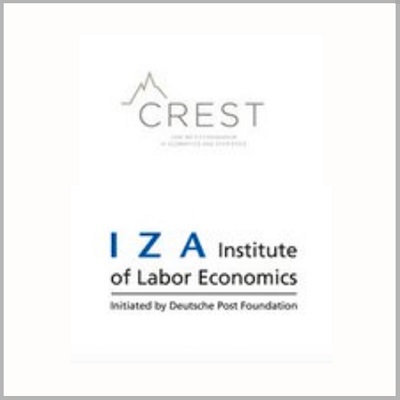Nicolas Chopin is invited to make a presentation in the “Statistics” session.
Antoine Ferey – Lauréat du prix de la thèse AFSE 2022
Félicitations à Antoine Ferey dont la thèse “Essais sur le barème et la structure des systèmes socio-fiscaux ” a obtenu le prix AFSE 2022.
“Die Macht der Herkunft”: An interview with Felix Tropf
Interviewed by Die Zeit, F. Tropf explain how scientists are studying the extent to which our genetic makeup determines our lives
En Centrafrique, la légalisation du bitcoin suscite perplexité et inquiétude
Julien Prat répond aux questions de Théo Borne pour le journal La Croix
Une interview d’Étienne Ollion pour le mouvement citoyen À nous la démocratie!
E. Ollion décrit les grands principes qui structurent la vie politique française et ouvre des pistes pour réformer la démocratie contemporaine. Propos recueillis par E. Martin, S. Ollivier et M. Valiergue
Paper co-authored with CREST researcher cited in the White House Economic Report of the President
“Gender Differences in Job Search: Trading off Commute Against Wage”
Co-authored with Roland Rathelot, Alexandra Roulet and Thomas Le Barbanchon
June 2020
Abstract:
In this paper we relate gender differences in willingness to commute to the gender wage gap. Using unique administrative data on job search criteria, we first document that unemployed women have a lower reservation wage than comparable men and that the maximum commute they are willing to accept is smaller. We also find that they get lower wages and shorter commutes in their next job. We then identify indifference curves between wage and commute using the joint distributions of reservation job attributes and of accepted job bundles. Indifference curves are steeper for women, who value commute around 20% more than men. Through the lens of a job search model where commuting matters, we estimate that around 10% of the gender wage gap is accounted for by gender differences in the willingness to pay for a shorter commute. Finally, we use job application data to test the robustness of our results and to show that female workers do not receive less demand from far-away employers, confirming that most of the gender gap in commute is supply-side driven.
Links:
The Quaterly Journal of Economics
https://academic.oup.com/qje/article/136/1/381/5928590
Summary of the 2022 Economic Report of the President
https://www.whitehouse.gov/cea/written-materials/2022/04/14/summary-of-the-2022-economic-report-of-the-president/
Economic Report of the President
https://www.whitehouse.gov/wp-content/uploads/2022/04/ERP-2022.pdf
17th IZA & 4th IZA/CREST Conference: Labor Market Policy Evaluation
Submission Deadline: June 30, 2022
Nicolas Chopin at SMC 2022
Nicolas Chopin will make a presentation “Waste-free Sequential Monte Carlo” at the SMC 2022 Wednesday, May 4th from 09:20 to 10:00 AM
Enjeux des législatives: Etienne Ollion invité de C ce Soir sur France TV
Invité de C ce Soir, Étienne Ollion analyse la situation politique actuelle à l’approche des législatives. Il était l’invité de Karim Rissouli, Thomas Snégaroff, Laure Adler et Camille Diao – 28 avril 2022, 68 mn
IPCC report: three things you need to know
An interview with Patricia Crifo, Philippe Drobinski and Julie Mayer in Polytechnique Insights. April 21st, 2022










